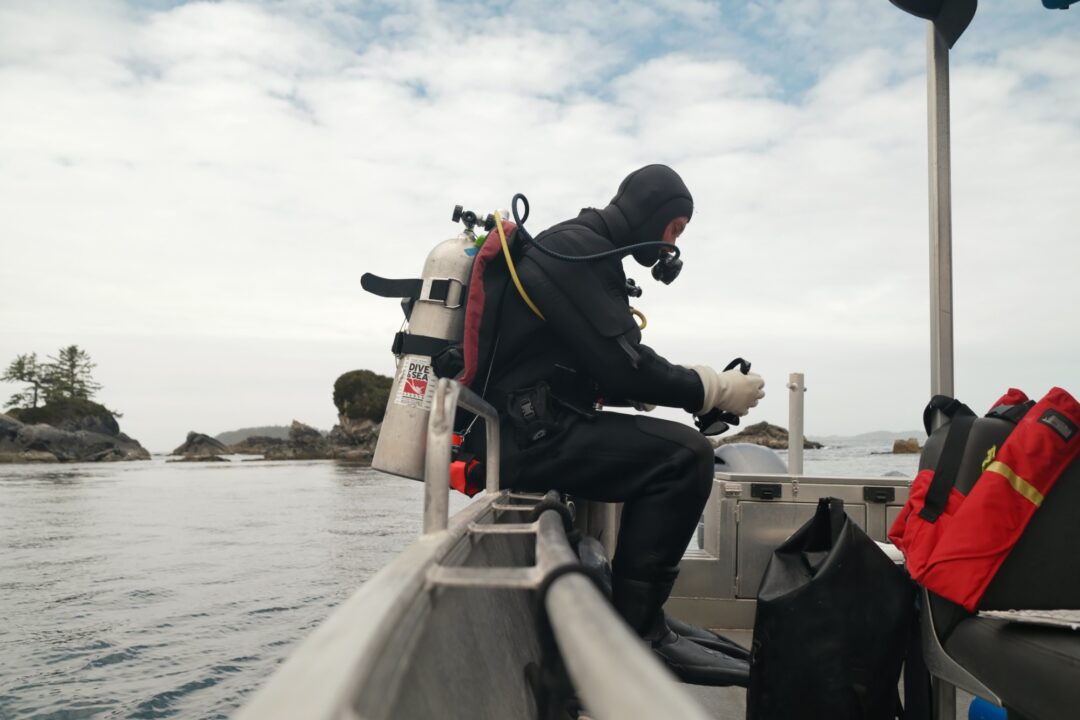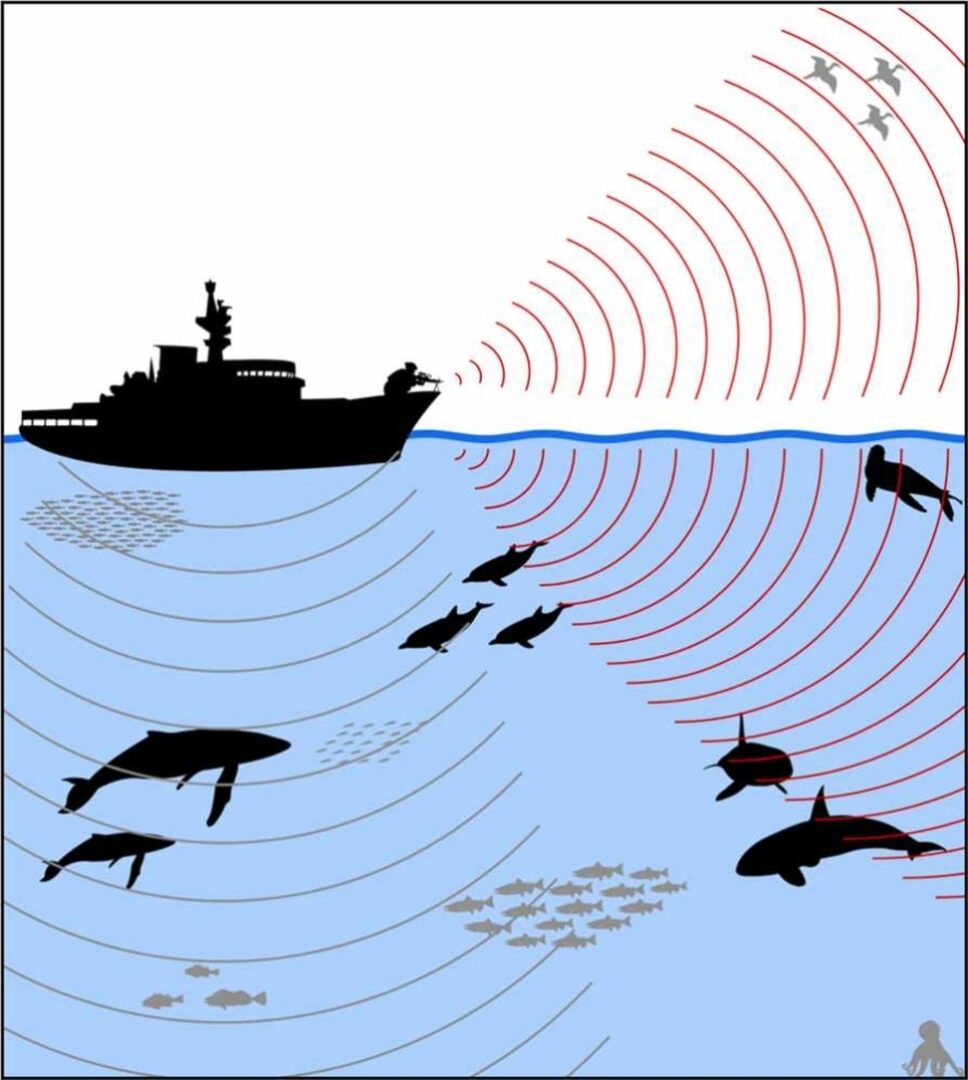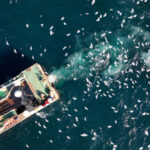Researchers are calling attention to one of the greatest pollutants in the ocean impacting BC’s marine wildlife – and it’s not the kind you might think. Noise pollution is an increasing threat to marine species, particularly whales, because it affects their ability to communicate, navigate, and locate food.
Kieran Cox, a marine biologist and post-doctoral fellow at Simon Fraser University, is part of a team of scientists analyzing how the noise pollution produced by the Canadian Department of National Defence (DND) ‘s military exercises is impacting whales. He and his colleagues are also advocating for the federal government to learn from the DND case study and adopt a proactive framework in their much-delayed Ocean Noise Strategy for Canada.
“Noise pollution is certainly something that everything from small invertebrates to big cetaceans are interacting with and so that’s why we’re moving forward as a country on this topic.”
Kieran Cox, marine biologist and post-doctoral fellow at Simon Fraser University

“Noise pollution is certainly something that everything from small invertebrates to big cetaceans are interacting with, and so that’s why we’re moving forward as a country on this topic,” Cox said to the Canadian Press.
In 2019, the Department of National Defence (DND) announced it would pause military training exercises in the Strait of Juan de Fuca, specifically in a 330-kilometre zone called the “Whiskey Hotel.” The area is also home to the province’s endangered southern resident killer whales.
During the pause, the DND commissioned a third-party report to investigate how noise from small arms and military training is impacting marine mammals and to propose methods for monitoring and protecting the whales. Military exercises resumed in January 2023 after new policies like mitigation avoidance zones, cease-fire procedures and marine species awareness training were adopted.
“You can really follow this as a template for how we would say, ‘Okay, this activity is going to occur, what kind of impacts (is it) going to have? How do we mitigate those and move forward with this shared space of the oceans?’”
Kieran Cox, marine biologist and post-doctoral fellow at Simon Fraser University

Cox and his team commended the DND for their proactive measures and stated that their decision to “implement mitigation strategies represents a framework rarely applied when evaluating the impacts of pollutants,” according to their paper published in Marine Policy.
“You can really follow this as a template for how we would say, ‘Okay, this activity is going to occur, what kind of impacts (is it) going to have? How do we mitigate those and move forward with this shared space of the oceans?'” Cox said to the Canadian Press.
He explained the DND report had some limitations because it did not examine the impact of noise pollution on the fish and invertebrate species in the area, especially those the whales are feeding on. The DND also only looked at the noise pollution produced by weapons, not by the ships themselves, which is known to be significant.

The timing of Cox’s research is pressing as the federal government is overdue to publish its Ocean Noise Strategy for Canada. Fisheries and Oceans Canada (DFO) representatives say the strategy “is anticipated before the end of the 2023-2024 fiscal year with an associated period of public engagement to immediately follow.”
“I think (the report) is a step forward, but it’s certainly by no means the end of the discussion for noise pollution in Canada. That’s just starting.”
Kieran Cox, marine biologist and post-doctoral fellow at Simon Fraser University
Marine researchers have long been advocating for the DFO to outline federal underwater noise regulations where none currently exist. Cox and his team are hoping that the DFO will implement an improved version of the DND strategy to mitigate noise pollution and its effects, the benefits of which “could have implications well beyond Canadian waters.”
“I think (the report) is a step forward, but it’s certainly by no means the end of the discussion for noise pollution in Canada. That’s just starting,” Cox said.
Earlier this Fall, we spoke to Janie Wray, CEO of the marine research organization North Coast Cetacean Society, about the worrisome impact that noise pollution from increased shipping traffic will have on fin and humpback whales once the massive Liquified Natural Gas (LNG) facility opens in Kitimat.
Wray is hoping industry will adopt ‘slowdown zones’ to reduce vessel speeds, particularly for large ships, which could significantly decrease potentially fatal whale strikes. She argues that “just slowing down makes a huge difference in regards to ocean noise,” preventing whales from being disoriented and colliding with marine vessels.







